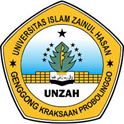Revisiting Al-Ghazali’s Thought: Contemporary Integration of Islamic Spirituality and Economics for Community Development
DOI:
https://doi.org/10.5281/zenodo.17373640Keywords:
Al-Ghazali, Islamic Spirituality, Islamic Economics, Maqasid Al-Shariah, Community Development, Contemporary Integration.Abstract
This study revisits the thought of Imam Al-Ghazali to explore the contemporary integration of Islamic spirituality and economics as a comprehensive foundation for sustainable community development. Al-Ghazali’s intellectual legacy presents a holistic framework that harmonizes material welfare with spiritual growth, asserting that economic activity is an ethical and spiritual act oriented toward maslahah (public good) and taqwa (God-consciousness). Using a qualitative-descriptive method through a library-based and hermeneutic analysis, this research critically examines Al-Ghazali’s principal works—particularly Ihya’ ‘Ulum al-Din and al-Mustasfa—to reinterpret his economic and spiritual insights within the context of contemporary socio-economic challenges. The findings indicate that Al-Ghazali’s economic thought is anchored in the principles of maqasid al-shariah (the higher objectives of Islamic law), promoting balance between spiritual purification (tazkiyah al-nafs), justice (‘adl), and productive engagement (kasb). This integration reinforces the notion that the ultimate goal of economic development is not material accumulation, but the realization of human well-being (falah) through moral discipline and social equity. In the modern era, Al-Ghazali’s paradigm offers a transformative perspective to counteract moral decline, inequality, and materialism in global economic systems. Academically, this research contributes to the advancement of Islamic economic thought and spiritual ethics by reconstructing Al-Ghazali’s framework into a contemporary paradigm of integrative community development. It bridges classical Islamic scholarship with modern development discourse, offering a values-based model that aligns economic empowerment with ethical responsibility. Furthermore, the study provides a theoretical foundation for future interdisciplinary research linking Islamic spirituality, socio-economic justice, and sustainable development.
Downloads
References
Ayu, Dena “ " Al Ghazali's thoughts on the application of the Islamic economic system in Indonesia”, Journal of Islamic Economic Law (JHEI), Vol. 4, No. 1, Bandung: UIN Sunan Gunung Djati, 2020.
Al-Ghanimi al-Taftazani, Abu al-Wafa', Sufis from Epoch to Epoch, Bandung: Pustaka, 1997.
Ahmad, Hanafi Introduction To Islamic Philosophy, Cet. 1st, Jakarta: Bulan Bintang, 1996.
Coal, Zakaria, Islam And The Economic Empowerment Of The Ummah, 2018.
Huril Aini, Jurnal Ekonomi Syariah 3“ "Imam Al-Ghazali's Islamic Economic Thought On Money In The Perspective Of Maslahah Mursalah". No. 1, Yogyakarta: Sunan Kalijaga State Islamic University, 2018.
Firmansyah, Hamdan, Imam Al-Ghazali: The Thought Of Islamic Economic Law 5th Century H/ 11 Ad, Vo. XIV, No. 1, Bandung: UIN Sunan Gunung Djati, 2018.
Fitria, Tira Nur, Contribution Of Islamic Economy In National Economic Development, Vol. 2, No. 3, AAS Surakarta: STIE, 2016.
Faizal, Moh. Journal Of Islamic Banking, “ "Study Of Imam Al-Ghazali's Thoughts On Islamic Economics", Vol. 1, No. 1, Palembang: IGM, 2015.
Ghazali, Bahri, the concept of science according to al-Ghazali, Yogyakarta: CV. Guidebook Of Jaya Science, 1991.
Kusjuniati, Islamic Social Welfare” An Islamic Economic Thought Of Imam Al-Ghazali (450-505 Ah/1058-1111 Ad ), 2019.
Hadi, Sholikul, et al “ "Comparative Study of Al-Ghazali and Ibn Taymiyyah's thoughts on the concept of treasure in Islamic perspective". JIEB 1, No. 1, Indonesia: Ma'some University, 2012.
Istan, Muhammad, Al Falah: Journal of Islamic Economics, “Pengentasan Kemiskinan Melalui Pemberdayaan Ekonomi Umat Menurut Persfektif Islam”, Vol. 2, No. 1, state Islamic Institute (Iain) Curup: Faculty of Islamic Economics and Business, 2017.
Jamaluddin, Islam And The Economic Development Of The Ummah, Vol. 6, No. 2, IAIN Ar-Raniry, 2007.
Karim, Adiwarman A, history of Islamic Economic Thought, Jakarta: PT Raja Grafindo Persada, 2006.
Lhutfiyah, Muh. Nature and Research Methodology; qualitative research, class action and Case Studies, Sukabumi: CV Jejak, 2017.
Linda, Sisi Ade, Jurnal MEDIASAS: media Ilmu Syari'ah dan Ahwal Al-Syakhsiyyah “thoughts of Al-Mawardi and Al-Ghazali on the role of the state in Islamic Economic Law,” Bandung : UIN Sunan Gunung Djati, 2022.
Mayzan Nada, Zuama Mazaya, periodization of the development of Islamic Economic Thought, STEI Sebi Higher Schoolof Islamic Economics, 2018.
Maghfiroh, Zaqirotul dkk, Jurnal Pemikiran Penelitian Ekonomi, “ Pemikiran Ekonomi Islam Pada Masa Peradaban Rasulullah SAW”. Vol. 8, No. 2, Pekalongan: State Islamic Institute, 2020.
M. Al-Ghazali, Shaykh, al-Ghazali answers 100 questions of Islam, Jakarta: Lentera hati, 2011.
Mudawan, Syafaul, Islamic Economics and prospects for Muslim development, Vol. 1, No. 2, JESP: 2022.
Rahmawati, Lilik, Al-Ghazali's Economic Concepts, Vol. 2, No. 1, Iain Sunan Ampel: lecturer of Sharia faculty, 2012.
Perwaatmadja, Karnaen A, Track Record Of Islamic Economics, Jakarta: Cicero Publishing, 2008.
Rakhmawati, and Abdullah, TADBIR: Journal of Islamic Education Management, “considering Al-Ghazali's ideas on Islamic education,” Gorontalo: Sultan Amai State Islamic Institute, 2017.
Ramdani Harahap, Soritua Ahmad, Jurnal Laa Maisyir , “Pemikiran Al-Ghazal Tentang Uang”, Vol. 6, No. 1, Gontor: UNIDA, 2019.
Syahrovi, Abdul Hamid, Analytical Study of Al-Ghazali's thoughts on social welfare according to Fiqh Muamalah, UIN Syarif Kasim Riau: Faculty of Shari'ah and Legal Sciences, 2012.
Suud, Muhammad, Social Welfare Orientation, Jakarta: Prestasi Pustaka Publisher, 2006.
Sjadzali, Islam and statecraft: teachings, history of thought H. Munawir Sjadzali, Cet. 2nd, Jakarta: Universutas Indosesia Press, 1990.
Thohir, Moh. Muafi Bin, Imam Al-Ghazali's Thoughts On Islamic Economics In The Book Of Ihya ' Ulumuddin, Vol. 5, No. 2, Indonesia: Lumajang State Islamic Institute, 2016.
Takhim, Mohammed, Islamic economic system and Public Welfare, Ngawi: IAI Faculty of Islamic Economics and Business, 2017.
Yudistiana, Susi Apriya and Nanda, Al-Afiah Journal, “the application of the classical Islamic economic system Al-Gaz② Lipito the Indonesian economy", Iain Palangka Raya : Faculty of Islamic Economics and business, 2022.
Downloads
Published
How to Cite
Issue
Section
License
Copyright (c) 2024 Nurlinda

This work is licensed under a Creative Commons Attribution-ShareAlike 4.0 International License.















